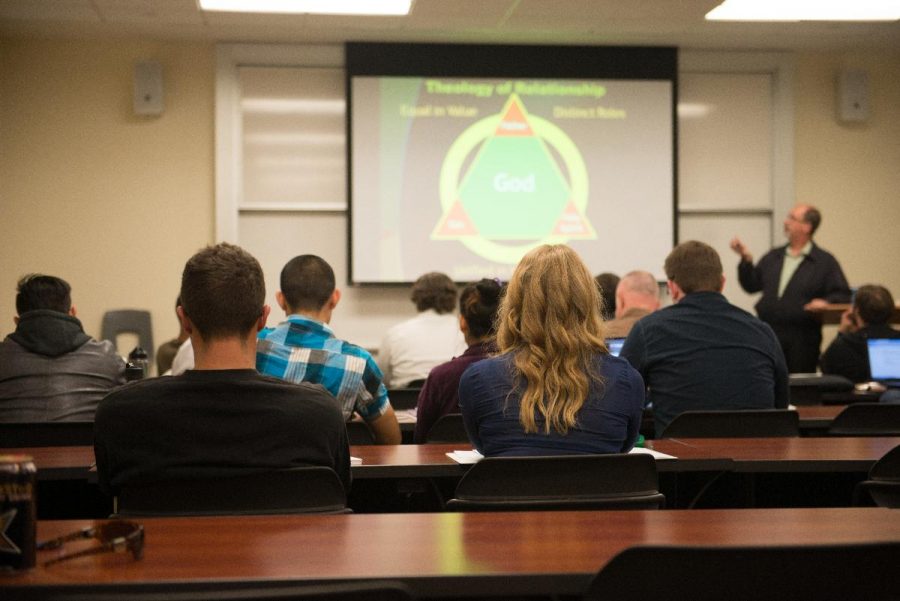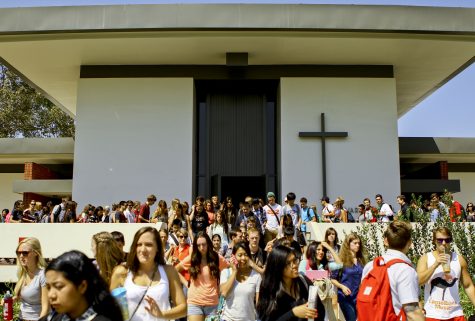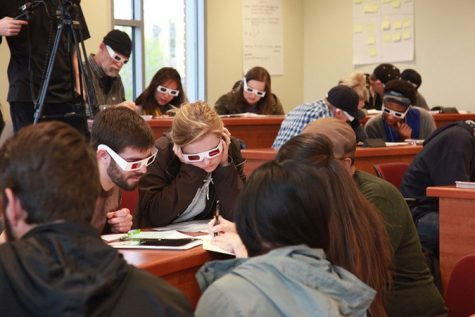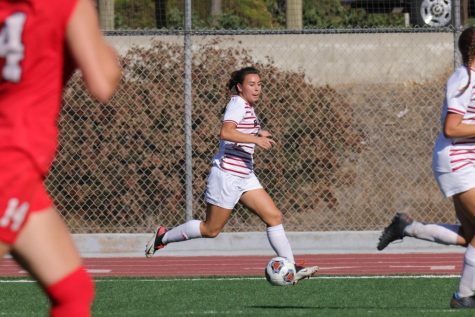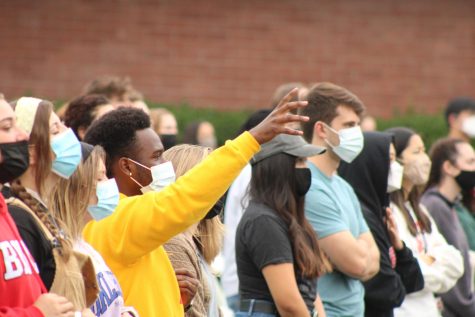Women of Talbot: Reflecting on the progress and challenges of women in a male dominated field
A look into the history of women in Talbot School of Theology.
March 19, 2014

Theology and the study of apologetics has traditionally been left for men to pursue throughout academic history. But changing rhythms of the church and the progressive movements of society have made the pursuit of a theology degree possible for women. On Biola’s campus, women are studying and excelling in fields that have been historically male.
Female students are the minority in Talbot. Women comprised only 21 percent of the fall 2013 incoming class, compared to 30 percent of the fall 2012 incoming class.
While still the minority, the number of women has increased dramatically in recent years. According to Talbot professor Ron Pierce, who has worked in the program for 38 years, it wasn’t until the 1970s that women were allowed to pursue the Master of Divinity or the Master of Theology degrees.
Talbot began as a separate school from the Biola undergraduate program, but was absorbed into Biola under former president Clyde Cook in the 1980s, according to Pierce. The women who taught at Biola continued at Talbot after the merge of the schools. This change, according to Pierce, brought on conversations that explored whether it was right for women to teach in Talbot and how the male faculty felt about it.
“The women at Talbot at that point were Christian education profs, and there was a certain sort of compartmentalizing Christian ed as different than Bible theology,” Pierce said.
A NEW ERA
In the 1990s, women were allowed to teach in adjunct positions for Bible theology. The first full-time female Bible professor was hired in the late 1990s.
According to professor Clint Arnold, the dean of Talbot, Talbot was initially established as a training ground for male pastors, but its vision has greatly expanded in a variety of ways. When Talbot was first founded, its original goal was to train Christians — male and female — for all kinds of ministry roles. Today, Talbot is still focused on helping all students and faculty progress.
“We don’t ordain anyone, we’re passionately committed to training women, we’re passionately committed to equipping women to serve the church, but we want to be sure that we are being accurate interpreters of the word,” Arnold said.
Being a woman in a male-dominated field of study can bring many different challenges. Jennifer Dodsworth, a graduate admissions counselor and recruiter who is also working towards her M.A. in New Testament, noted some of the concerns of women considering Talbot for graduate studies.
“I think that in some cases [women] haven’t had great responses from some seminaries, so I think they’re always really encouraged, one, to be able to speak to another woman,” Dodsworth said. “I think they really appreciate that perspective. And just to hear that, ‘Yes, we definitely do have women that are taking the MDiv and we have women professors in Talbot.’”
GENDER ROLES A POINT OF DISCUSSION
Women have varying experiences within the Talbot program. For many, one of the most significant points of tension relates to gender roles within the church.
There are two main ideologies regarding gender role in the church: egalitarian and complementarian.
According to an article on the differences of these two viewpoints from cmbw.org, an egalitarian view maintains that men and women are created equally in all respects while complementarianism says that men and woman were created equal, but with role distinction.
Theologians have been engaging in this discussion for decades. According to Pierce, the issue of gender roles really picked up after Paul Jewett wrote a book called “Man as Male and Female.” Jewett, an evangelical, believed in the authority of scripture. His egalitarian position in the book caused a lot of controversy.
“The dialogue was healthy in the late ‘70s and early ‘80s, it peaked probably in the mid-‘80s both nationally as well as on campus,” Pierce said. “Since then there’s been no public dialogue on campus between Biola faculty on this issue.”
A professor may be egalitarian or complementarian, but what is important to Talbot is that the person uses sound biblical hermeneutics, according to Arnold.
The well-worn tension surrounding gender roles is not confined simply to discussion or academic study. Some women recognize it as part of their personal Talbot experience.
Talbot student Anna Mitchell is working to get her Master of Divinity in order to become a military chaplain. Mitchell served five years in the Marine Corps and because of that experience, the uneven male-to-female ratio in Talbot was not a shock to her. What she does struggle with as a woman studying theology is the idea that men and women have separate responsibilities in serving the Lord, an idea that seems ridiculous from a military perspective.
“I feel strongly that God intended men and women to work together, that they’re meant to be functioning as a unit, as a whole,” Mitchell said.
Sarah Schwartz, a Talbot student working towards her M.A. in biblical exposition, voices that being a woman as well as an egalitarian is difficult because of the constant scrutiny from peers and professors.
“Every time I’m in class, I’m never relaxed because I always want to make sure what I’m saying sounds intelligent and that I’m articulating myself well,” Schwartz said.
“Even small things, like how I’m dressed, do I look professional? If I didn’t know me, would I take me seriously?”
Christa McKirland, a Talbot student working on her Masters of Theology, says that being a woman is not as much of a challenge as having a different ideology from the majority of her peers and professors.
According to McKirland, it is important for women to pursue theology because women make up half of the body of Christ. She explains that, because there are too few women in ministry, half of the church isn’t heard or understood. McKirland wants to earn her degree and offer her knowledge to others.
“My dream of dreams would be able to come back and teach at Talbot,” she said. “I’d love to do that, not just as a woman but as someone who holds that men and women are completely equal in essence and in function — because that’s just not a viewpoint that is heard in that building and I really think we could have some very positive dialogue about that.”


